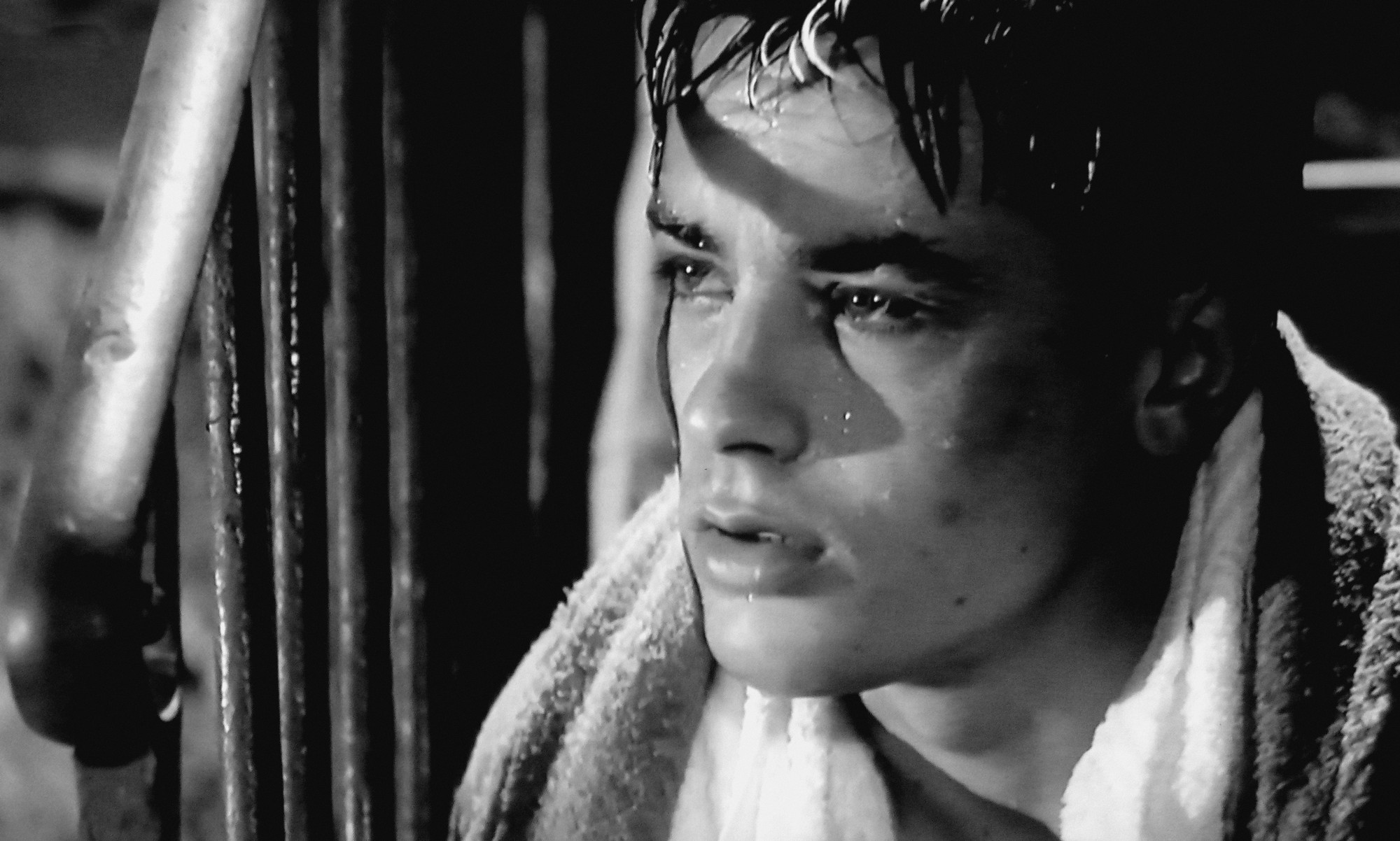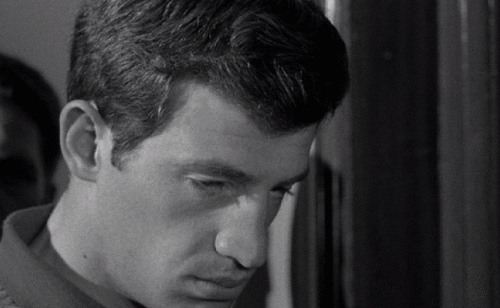
Lights, Camera, Action! A Primer on French Cinema
Pass le popcorn !
by Brian Alcamo
Agnès Varda, Bridget Bardot, François Truffaut, do any of these names ring a bell? If not, they should! France has a huge cinema culture. Not only is the country home to one of the largest film industries outside of the US, it was also the birthplace of many of the cinematic technologies we take for granted nowadays. A history of the artform runs deep in this hexagonal country, and it’s time to check it out.
A Super-Brèf History of French Cinema
So where does that history begin? It begins in Lyon, with les Frères Lumière. Auguste and Louis Lumiere, also known as the Lumière brothers, were kind of like France’s Wright brothers, in that they were brothers who invented something together. Growing up with a father in the photography industry, this dynamic duo took what they learned while growing up and developed the cinematograph. This three-in-one device was used to shoot, print, and project film.
In late 1895, the brothers released 10 very-short films at the Salon Indien du Grand Cafe in none other than Paris, France. The films dazzled their audience, who had never seen anything like it before. However, the film that embedded itself into the modern cinematic tradition the most was L’Arriveé d’un train en gare de La Ciotat, or “Arrival of a train at La Ciotat,” This film was not part of the original ten, but was instead showed for the first time in January 1896. The audience members were so new to the concept of cinema that they purportedly ran away from the screen, thinking that the train would come barrelling towards them!
A second early-cinema film that took the world by storm was Le voyage dans la lune (1902), which is widely considered the first science fiction film. Directed by magician-turned-filmmaker Georges Méliès, the film was the first to use many techniques and special effects that are the building blocks of modern editing methods.
After the dawn of the cinematic artform, French film went through several artistic movements: German (yes, German) Expressionism, La Nouvelle Vague, Left Bank Cinema, Le Cinéma Vérité, Le Cinéma du look, and others. It’s consistently evolved on its own, and in response to work being put out by Hollywood. Some say that the infamous Nouvelle Vague was created out of a reaction to the formulaic, studio-based films coming out of Los Angeles at the time.
French Cinema Today
French film is a strong industry, and receives substantial amounts of financial support from the government. Movie theaters are typically used as a refuge from sometimes unbearable summer heat, since so many french dwellings don’t have air conditioning. If you’re ever in France during a canicule, be sure to catch a movie to cool off while experiencing some culture.
To keep up with the latest in French entertainment news, you should keep your eyes on AlloCiné, a French website that combines elements of IMBD and Variety. You can search for information on your favorite shows and also get updates on the industry as a whole, all while your comprehension écrite.
If you want to get a romanticized glimpse into the French film industry, check out the series Dix Pour Cent. Named after the percent of money that agents typically get from an actor’s contract, the show follows the lives of four stressed-out Frenchies as they make deals with France’s biggest vedettes. The show is a great primer on the names of French movie stars, since every episode features a different big ticket actor playing a fictionalized version of themself. In the US, the show is known as Call My Agent! and is available on Netflix. If you need subtitles, try putting them in French instead of English to push your language learning to the next level.
Take a Dive into Some French Classics!
Thanks to streaming platforms, French-language movies and television are easily available online. They’re also a great way to practice your French, and to get a glimpse into the specificities of French culture. What’s your favorite French film? Be sure to comment below, and give this post a heart!
(Thumbnail photo by Michał Parzuchowski)
The French Streaming Service War
An alliance between France’s three biggest TV networks to protect the country’s art against an onslaught of American entertainment.
France has long defended its ‘exception culturelle' with subsidies, quotas and tax breaks to protect French films, music and television from the ravages of a market economy. Now it is preparing to go to battle against the America-based streaming giant, Netflix.
France’s three biggest broadcasters have set aside their rivalry to form an unprecedented alliance to take on the American colossus with encouragement from the government.
France Télévisions, the state-owned public service network, is joining forces with the main private network, TF1, and M6 to launch a subscription service called Salto next year offering a catalogue of French TV shows and original content.
Despite the negative reception from state-subsidized local media when Netflix launched in France, the service has gained 3.5 million subscribers in the country. Salto’s initial £45 million budget is dwarfed by the £6 billion Netflix is spending on content this year with hopes that Salto can work as long as it doesn’t position itself as a competitor but as an alternative to Netflix. Salto will also need the green light from Brussels, to ensure that it does not breach EU competition rules. Despite their efforts to appease the French film industry by producing content exclusively for France, it didn’t save Netflix from being banned from the Cannes Festival, which ruled that its films could only compete if they had first been shown in French cinemas. In 2017, Netflix had 2 films nominated for the Palme d’Or award: Okja and The Meyerowitz Stories. Under pressure from the The Federation of French Cinemas (FNCF), festival organizers announced that in future only films with a cinematic release in France will be eligible for the prize and in 2018, Cannes officials banned Netflix from the competition. This all stems from The French cultural exception.
In France, cinema tickets are taxed and the funds raised subsidizes the country’s domestic film industry. Netflix’s distribution model would drain the French cinema of their funds. In addition, Under the organization’s regulations, a film must take no less than 36 months from cinematic release to its debut on an online streaming service which would be completely incompatible with Netflix’s business model. In spite of these setbacks, Netflix is continuing to produce more French-language series which will premier in late 2018.
We hope you've enjoyed learning about The French Streaming Service War! Do you think this will help or hurt the French cinema? Join the conversation below!
Saving The French Cinema
Down with Putlocker: Le Cinéma vs. Les Pirates, starring Françoise Nyssen.
France’s Minister for Culture, Françoise Nyssen, is working to ensure that measures are taken to blacklist websites that engage in piracy affecting French cinema. As you may remember from our previous article, GOING UP IN SMOKE, the cinema is possibly France’s most cherished export (behind the baguette of course) which may explain why Nyssen is so dead-set on taking care of this “scourge” once and for all.
She has stated that “We must impose the same financial obligations on these players as those traditionally established in France, and we must impose a quota of European works on video on demand platforms” and has vowed to create regulation to aid in the fight against piracy and, effectively, put France at the head of the spear. She has described piracy as “an absolute scourge,” and that it destroys the “worth, power and duty of dissent” of France.
“I hope that ‘blacklists’ will be established by HADOPI [Haute Autorité pour la Diffusion des Œuvres et la Protection des droits d’auteur sur Internet (Supreme Authority for the Distribution and Protection of Intellectual Property on the Internet)], to allow advertisers, payment services or search engines to recognise illegal sites and to stop their dealings with them,” she said.
According to Nyssen, most of the government’s power in combatting piracy is being used ineffectively by focusing on peer-to-peer downloads, while nearly 80% is perpetrated by streaming or direct download.“The fight against piracy is one of the great challenges of the century for cinema. France will be on the front line in supporting it,” she declared.
A major financier of French and European cinema (with €500 million in direct investment), The Canal + Group has received the Minister’s proposals with open arms as it also holds a place at the forefront of the piracy war. In a statement by the company, they hope to “By tackling illegal streaming and downloading, placing the priority directly on the fight against pirate sites and their mirror sites in a dynamic way, creating the conditions for a rapid and lasting suppression of the sites concerned in connection with the judiciary, this plan shows an encouraging ambition and a pragmatic adaptation of certain good practices that have proven effective abroad.”
We hope you've enjoyed learning about how the French government, especially, Françoise Nyssen is working to Saving the French Cinema. Do you think the efforts will be successful, or is piracy an inevitable byproduct of the digital age? Let us know what you think below!
Going Up In Smoke
A move to curb the cinematic allure of a lit cigarette.
This past week, French senator, Nadine Grelet-Certenais, has struck a match in the French cinema world by proposing a ban on film stars smoking on screen. She states makes the habit coveted and provides free advertising to the tobacco industry. Now that Agnès Buzyn, the health minister, has echoed her sentiments, film-makers may have their hopes going up in smoke.
Unfortunately, this may be much more difficult than just banning them outright. Smoking a cigarette and French cinema have always gone together, and not just in the sense of being on the screen.
They are both very effective ways to kill time.
Think back to any famous French film without the hero positioned stoically surrounded by a delicate stream of twirling smoke...
What has kept this cinematic construct alive is not that it "looks cool" but, more importantly that it foreshadows the mortality of the French antihero. However, as a juxtaposition to their many on screen smoking characters, two of the most famous French film stars, Jean-Paul Belmondo & Alain Delon, are still alive into their 80s.
This has been mirrored in American film and television as well, specifically in period pieces such as Mad Men, Mindhunter, Narcos, etc. In order to accurately represent how these characters went through everyday life requires what was, at one time, an essential prop in the real world at that time.
While this topic remains debated feverently, we can only hope French film-makers and politicians can come to a compromise to not only preserve artistic integrity, but be weary of glorifying an unhealthy habit.
What do you think about the possibility of the French cinema going up in smoke? Leave a comment below!










